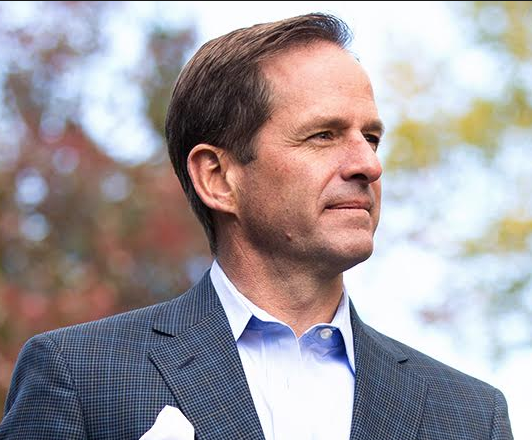
Public officials and other notables never learn: It is not the crime, but the cover-up that will get you every time.
From Nixon’s Watergate to Martha Stewart’s insider trading, the cover-up brought them down, not a third-rate burglary or the actual stock trade prior to a major corporate announcement.
While not on as big of a stage, the Croydon school board is dancing on a very fine line by refusing to release the names of those who contributed to the board’s legal defense fund.
The courts ruled against the board’s use of tax money to send a handful of their students to a private school, including its chair’s two children and her nephew. The town’s school teaches kindergarten through fourth grade, and the town contracts with the Newport School District to provide education for fifth through 12th grades.
By sending students to private schools, the school board is establishing a school voucher program, something defeated by state lawmakers numerous times.
To fight the state attorney general’s ruling that prohibits the use of tax dollars to send students to private schools, the board established a legal fund and sought donations.
To date, the board has refused to release the names of people who contributed to the fund, citing a law that does not apply to a legal fund for a public entity and the privacy rights of the contributors.

Newly appointed Education Commissioner Frank Edelblut never disclosed that he contributed to the fund when he was nominated to the post earlier this year by Gov. Chris Sununu, although he sponsored legislation last year supporting Croydon and backed the board’s cause as a gubernatorial candidate.
He publicly said he contributed earlier this week after Executive Councilor Andru Volinsky, D-Concord, asked him directly if he had.
With the blessing of Sununu, lawmakers are soon likely to approve allowing communities without schools of their own to send students to private and religious schools and the issue will be mute.
But that does not address the question of who contributed to the legal fund.
The issue is accountability and the public’s right-to-know who is influencing decisions made by public officials.
Finding out who pulls the strings of influence of lawmakers is becoming more and more difficult with the advent of “advocacy groups” that do not have to publicly name their contributors.
Political candidates and their political action committees do have to release the names of contributors.
Education or advocacy groups are forbidden from contributing or actively working for or against candidates, but many push the limits to the breaking point and often have a political counterpart for the direct contributions.
For example, Americans For Prosperity fought Medicaid expansion in New Hampshire and continues to oppose its reauthorization. While the group did not endorse any candidates, it worked very hard to defeat the Republican state senators and House members who supported the Affordable Care Act program.
Americans For Prosperity has continually pushed business tax reductions, the repeal of the Regional Greenhouse Gas Initiative (RGGI), and right-to-work legislation, but does not disclose who its donors are although most of the organization’s money comes from the Koch brothers.
Another group, Cornerstone Action, actively worked to defeat last year’s bill outlawing conversion therapy to change a teenager’s sexual orientation. The group opposes Common Core, and advocates for school vouchers, pro-choice legislation, parental rights, religious freedom and limited government.
As part of its advocacy, it taps into national groups whose members are more than willing to send emails and make phone calls for their positions.

The group organized an email and phone effort against the transgender rights bill that caught the attention of Republican House Speaker Shawn Jasper, who worked successfully to defeat the bill after the House Health, Human Services and Elderly Affairs Committee voted 15-2 to approve the bill before the House vote.
Several House members noted most of the emails opposing the bill were from out-of-state residents and not their constituents.
The advocacy groups are not only on the right side of the political spectrum, but are also on the left.
One such group, Granite State Progress, advocates on many issues before New Hampshire lawmakers, from raising the minimum wage to opposing repealing the need for a concealed weapons permit.
Another group, NH Freedom to Marry, helped push through same-sex marriage several years ago and continues to monitor attempts to change the law.
Neither group has to disclose its donors.
The problem is transparency.
Who is influencing Granite State legislators, executive councilors, or even the governor in crafting policy and laws for New Hampshire?
Groups like the Business and Industry Association have members so you know who they represent, as you do with NEA-NH and other labor unions or groups representing auto dealers and restaurant owners.
A national group, the Marijuana Policy Project, has fought for years to at least decriminalize the possession of small amounts of cannabis, with an eye to eventually legalizing its use.
Public opinion polls show legalizing marijuana is supported by a majority of state residents, yet the attempts to reduce the penalty for possession to the equivalent of a parking ticket has failed to either pass the Senate or the governor’s desk.
Why? Because the NH police chiefs association has opposed it and worked hard to convince lawmakers of its position.
In the past, liquor brokers had a great deal of influence with lawmakers as did the race tracks and railroads.
There used to be the university mafia that advocated for UNH and the other public, higher-education institutions.
And there used to be the influence of the Union Leader, Concord Monitor, Foster’s Daily Democrat, Nashua Telegraph and WMUR, but no longer.
People lament the influence of money in the political system, particularly at the national level, but small states like New Hampshire are not immune from the massive amounts of money now being spent on elections and influencing policy, laws and regulations.
Small states like New Hampshire are very susceptible to outside money as well as the legions of volunteers the advocacy groups attract to knock on doors, make phone calls and man booths at events.
Several years ago, the state Senate tried to make advocacy groups who were mailing negative brochures against candidates disclose their donors.
The subcommittee gave up trying to make any meaningful change after many months of work, having found it difficult to legally separate the American Cancer Society or Easter Seals from those dumping thousands of dollars of last-minute attack pieces against a candidate.
This session, three Republican senators — Senate Majority Leader Jeb Bradley, and Sens. Sharon Carson and Dan Innis — have introduced Senate Bill 33, which will modify the definition of “political advocacy organization” to include any group that spends over $5,000 and refers to a clearly identified candidate or candidates.
The Senate Election Law and Internal Affairs Committee voted 3-2 to recommend killing SB33, but the Senate voted 14-9 to pass it with five Republicans joining nine Democrats to send the bill to the House, which has yet to act on it.
This is “sunshine week,” when news organizations try to shed some light on information that government tries to keep from the public.
If SB33 passes the House, maybe a little “sunshine” will illuminate some of the dark money flowing into the state to influence elections.
More work needs to be done to shed light on the money used to affect policy and laws in New Hampshire, because that requires a change at the federal level and that is not going to happen any time soon.

Garry Rayno’s Distant Dome runs exclusively on Manchester Ink Linkand InDepthNH.org, where Rayno will explore a broader perspective on State House – and state – happenings twice each month.
 Over his three-decade career Garry Rayno has closely covered the NH State House for the New Hampshire Union Leader and Foster’s Daily Democrat, and his coverage spanned the news spectrum, from local planning, school and select boards, to national issues such as electric industry deregulation and Presidential primaries. He is former editor of The Hillsboro Messenger and Assistant Editor of The Argus-Champion. Rayno graduated from the University of New Hampshire with a BA in English Literature and lives with his wife Carolyn in New London. He can be reached at garry.rayno@yahoo.com.
Over his three-decade career Garry Rayno has closely covered the NH State House for the New Hampshire Union Leader and Foster’s Daily Democrat, and his coverage spanned the news spectrum, from local planning, school and select boards, to national issues such as electric industry deregulation and Presidential primaries. He is former editor of The Hillsboro Messenger and Assistant Editor of The Argus-Champion. Rayno graduated from the University of New Hampshire with a BA in English Literature and lives with his wife Carolyn in New London. He can be reached at garry.rayno@yahoo.com.







